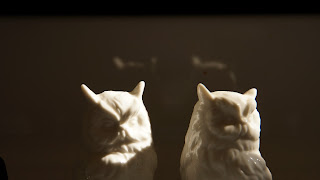Death bloomed early for me, like the Corpse Flower, one of the first in spring, which cultivates a rotting scent to attract its fly food. Ugly, complex, and 100% natural, it blooms long before the conventionally beautiful blossoms like Dutchman's Breeches and Trillium.
But awareness that others experience this kind of loss bloomed late. For a long time I thought I was alone, experienced no one who could relate to me, even when I joined an early Internet listserv for a sociology student's research study of young people who lost both their parents before the age of 30. Most of the people in the group said they had loved their parents, felt close to them; no one else reported a complex grief like that of mine about my mom.
Another Bullshit Night in Suck City by Nick Flynn, Dave Eggers' A Heartbreaking Work of Staggering Genius, and so many other memoirs, blogs, and essays have helped me find others who have had complex grief in their orphan hoods. And, with time and a lot of therapy, I even began– am still beginning–to see how much loss there is in living relationships between parents and children. Understanding my friends whose mothers, in particular, they have conflict or trauma with that remain deeply unresolved, even though their mothers remain alive.
I think it's because Samantha Irby's book We Are Never Meeting In Real Life seems to NOT be about complex grief that it struck me so strongly.
In the beginning, the collection's essays are more about being fat and black and having mental health challenges than losing her parents. So I was totally taken aback at her essay "Happy Birthday "in which she finds out her father, long not active in her life due to alcoholism, has died. The day before her 18th birthday.
From "Happy Birthday":
My aunt called. My father had had two heart attacks and a stroke. Or two strokes and a heart attack. Fuck, these are the kinds of details that blur. I can tell you with near certainty that I was wearing an oatmeal-colored knit turtleneck sweater, but not the ratio of heart attacks to strokes my dad had at the end of his life.Now we were talking. Someone else who could crack dark jokes about complicated parental loss, point to connections between those same parents' treatment of her and her challenges now, with love, humor, and direct honesty.
The "Happy Birthday" essay is almost half way through the book. To be honest before then I was ready to stop reading at any point. I found the writing amusing, but not quite open enough. But after that essay, an egg had cracked open. I was hooked. In a further essay, "Nashville Hot Chicken," she goes on to describe taking her now wife on an early date road tripping to Nashville to spread her dad's ashes years after his death. Yes. This is what I read Caitlin Doughty, the famous ask-me-anything coroner, for. Doughty is one of the only writers I've found who will describe cremains and the horrid humor that is trying to figure out what to do with them. And still, for Doughty it's not personal, not yet, not like it is for Irby. And me.
From "Nashville Hot Chicken":
In hindsight I realize that that is a heavy fucking thing to ask a normal person with actual human feelings to accompany you to do. In my mind it was like Weekend at Bernie’s, but in real life she has a mom she talks to on the phone once or twice a week and isn’t used to my whole LOL I KILLED MY MOM shtick. This could be an emotional minefield.Before Irby starts writing earnestly about death, queerness kept me coming back– antics with sex toys, hoping lesbian bed death is real because of a lack of sex drive. But my heart sprang open when she invited complicated death into her essays.
Is it just because I can relate? Is it because I'm grateful to see anyone write candidly about death? Is it the late late bloomer in me who finally gets to hear other orphan stories I can relate to? Long after learning to make do, with orphan stories I don't relate to, or with still-living parents and difficult relationship tales?
The fact is, orphanhood is a huge part of my identity. Irby is only a few years older than me – we have a lot generationally in common. It's the combination of her being enough like me and cracking open something hard and taboo we aren't supposed to discuss - especially things I relate to like death and queerness - that keep me reading.
In the middle of reading others collections of essays, letters, and research on orphans, a book in which orphanhood is a substantial influence – but not the main subject – is extremely powerful and shows me ways to integrate.

No comments:
Post a Comment